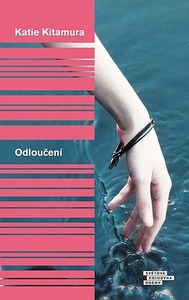Take a photo of a barcode or cover
reflective
slow-paced
Plot or Character Driven:
Character
Strong character development:
No
Loveable characters:
No
Diverse cast of characters:
No
reflective
tense
slow-paced
Plot or Character Driven:
Character
Strong character development:
Yes
Loveable characters:
No
Diverse cast of characters:
No
Flaws of characters a main focus:
No
Loved intimacies but this one felt a little forgettable
dark
emotional
mysterious
reflective
sad
tense
medium-paced
Plot or Character Driven:
A mix
Strong character development:
Yes
Loveable characters:
No
Flaws of characters a main focus:
Yes
challenging
reflective
slow-paced
Plot or Character Driven:
Character
Strong character development:
No
Loveable characters:
No
Flaws of characters a main focus:
Yes
This feels enough like Deborah Levy’s Hot Milk—which left me totally cold—to make me wonder why it works for me when Levy didn’t. Both follow young-ish non-Greek women who are temporarily in Greece, in an environment that’s both vaguely menacing and obviously over-interpreted. Someone (let me know if it was you!) wrote of A Separation that the word “imagination” and its cognates occur over and over in it, something like forty times. So clearly that’s one important aspect of this book: our nameless narrator’s ability to imagine, mostly accurately but on the basis of surprisingly little evidence, what the interpersonal dynamics of the people around her might be, and how her estranged husband might have comported himself while he was at the hotel from which he has very recently vanished. It’s also been compared to Rachel Cusk’s Outline, which, again, is a perfectly logical comp to a book I liked a lot less than this. Why?
Maybe because the other things that are really important in this book are infidelity and bereavement. Christopher, the husband, has cheated throughout their five-year marriage with a variety of women; the narrator pretends, “for all our sakes”, that he’s only had three mistresses, but she knows it’s been many more. This knowledge comes to the reader slowly. The narrator certainly doesn’t start out by telling us, although it might clarify why Christopher has asked her to keep their separation a secret (something we find out, conversely, early on). Her sense of loss filters very, very gradually into our consciousness and hers: initially, she seems absolutely indifferent to the pain and betrayal he’s inflicted upon her, and as she’s in a new relationship, we believe her self-presentation. Only as the book progresses do we realise that, of course, there is grief about the death of a marriage even if both people know it’s right, and of course this book is about what it feels like to lose something irreparably. That thematic interest resonates in Christopher’s professional work—he’s a non-specialist nonfiction writer working on a book about grieving and mourning rituals, and has allegedly come to Greece to interview professional mourners known as “weepers”—and in hers: she is a translator, and the idea of fidelity is discussed in relation to language as well as love. (Yes, yes: classic Literary Fiction Jobs.)
About 3/4 of the way through the book, Christopher’s body is found on the roadside, skull caved in by a rock. Maybe what I like about A Separation is that it does tie itself to the real world: to the incoherent humiliation of a dead body’s half-open eye and gaping mouth; to the half-buried, not-fully-available-to-the-touristy-outsider’s-comprehension dynamics of the fishing village where the hotel is located, whose inhabitants set the countryside on fire the previous summer in an escalation of a feud between farmers over stolen livestock; to combinations of emotions that don’t easily coalesce into nameability, like when the narrator eats dinner with the hotel receptionist, Maria, with whom Christopher has of course slept, and finds herself oscillating between pity, exhaustion, irritation, and a kind of wonder. Levy and Cusk don’t really do that; their characters live in a vaguely defined half-light that seems less real the more auto-fictional it gets. Kitamura’s world is both more uneasy and more recognisable. Source: local library #LoveYourLibrary
Man there was too much build-up that I had high expectations for the end.
emotional
reflective
slow-paced
Plot or Character Driven:
Character
Strong character development:
Yes
Loveable characters:
Complicated
Diverse cast of characters:
Complicated
Flaws of characters a main focus:
Yes
dark
emotional
mysterious
slow-paced
Plot or Character Driven:
A mix
Strong character development:
Complicated
Loveable characters:
Complicated
Diverse cast of characters:
N/A
Flaws of characters a main focus:
Yes
had a few good paragraphs at the end, but otherwise is mainly trying to make you imagine what kind of sick woman could not gaf about her wealthy & handsome & missing and murdered? husband! which is easily imagined & not at all interesting lol. could have been a subpar short story rather than a novel idk





